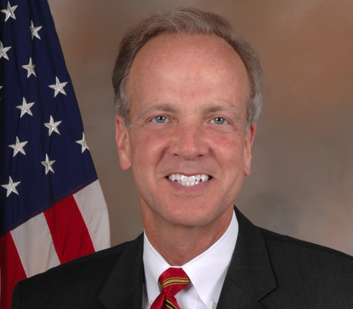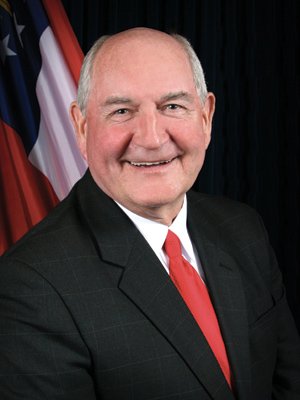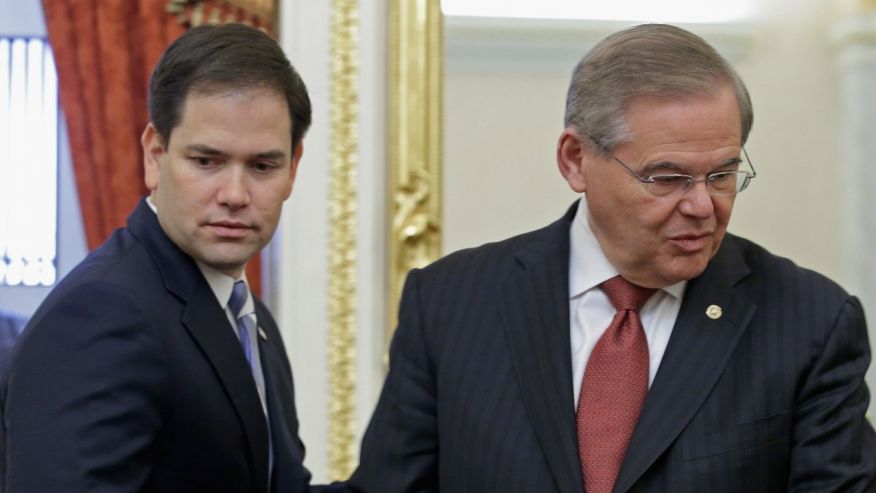
Food as a weapon
For a century the United States has provided food to nations out of the belief that hunger and famine undermine stability and threaten our values and our security. After attempts by Presidents Ford and Carter to embargo grain shipments to the Soviet Union backfired, it has been an article of faith that the U.S. would forswear the use of food as a political weapon. Recent efforts to attack a Cabinet nomination in the Senate and, separately, to derail legislation to promote food exports in the House, remind us how this principle is honored in the breach by policymakers who like to stick it to Cuba.
Sales of food to Cuba face fewer restrictions under the U.S. embargo than other products or services, but they are constrained by one significant limitation. In contrast to how we conduct sales of U.S. agricultural products to any other nation, the Trade Sanctions Reform and Export Enhancement Act of 2000 (TSRA) prohibits any U.S. credit or guarantees for food exports to Cuba. Instead, Cuba must pay on a cash-in-advance basis.

No other country imposes this limitation on its farmers, and TSRA exacts a price. While Cuba has purchased more than $5.3 billion worth of agricultural commodities and food products over the last 15-plus years, according to the U.S.-Cuba Trade and Economic Council, our farmers could have sold far more. As Kansas Senator Jerry Moran told the U.S. Senate last month, “It costs about $6 to $7 a ton to ship grain from the United States to Cuba. It costs about $20 to $25 to ship that same grain from the European Union.”
U.S.-grown food should be attractive to Cuba, which depends on imports for 60-80 percent of its food requirements, given our advantages of quality, proximity, and price. But Cuba prefers to meet the majority of its food requirements by dealing with suppliers from other countries that can offer Cuba credit financing. As a result, it has cut back on food purchases from the U.S., which reached a high of $710 million in 2008 but fell to $232 million last year.
With this unilateral sanction, we raise the costs of putting food on kitchen tables for Cubans across the island, while giving away market share to our competitors. As Senator Moran said in a recent floor speech, “Keep in mind that when we don’t sell agricultural commodities to Cuba, somebody else does. … When we can’t sell wheat that comes from a Kansas wheat field to Cuba, they’re purchasing that wheat from France, from Canada, from other European countries.”

For years, agriculture-state legislators like Senator Moran and Congressman Rick Crawford of Arkansas have pressed Congress to enact legislation that would allow U.S. farmers to sell into the Cuban market with credit financing. But they have been thwarted time and again by pro-embargo hardliners who castigate those who propose extending credit as offering concessions to “the Castro regime.”
Here are two cases in point.
President Trump nominated former Georgia Governor Sonny Perdue to serve as Secretary of Agriculture. Every other Cabinet secretary nomination has been approved by the U.S. Senate, except Sonny Perdue’s, whose vote has been delayed over food sales to Cuba.
During his confirmation hearing before the Senate Agriculture Committee, Perdue told the panel, “We would love to have Cuba as a customer,” but that Congress has to pass legislation to fix the financing issues that depress U.S. sales to the island.
“I think if we can get the private financing done there — and there’s some proposals already to do that — I think American agriculture both in the Upper Plains and in the Gulf Coast and the East Coast have a wonderful opportunity,” Perdue said in response to a question from Sen. Amy Klobuchar (MN). “That’s a country that’s hungry. I led a delegation there in 2010 in Georgia and they wanted our product. They could just not afford it and pay for it there based on the financial crisis that they were in. So, hopefully we can mitigate that.”
Following committee approval of his nomination, however, his path to a vote on the Senate floor was blocked by Senator Robert Menéndez of New Jersey, with the support of Senator Marco Rubio from Florida, because of the statements Perdue made on financing for U.S. exports to Cuba.

It wasn’t until both Senators had private conversations with Perdue, the contents of which have not been disclosed, that they signaled their willingness for his nomination to be voted by the Senate. We’re left to imagine what he promised them; as a reporter for the High Plains/Midwest Ag Journal put it, “whether Perdue has since changed that stance hasn’t been made clear.”
Then there’s the case of Rep. Rick Crawford (AR-1), champion of the Cuba Agricultural Exports Act, the House bill to fix the agriculture finance problem. Nearly a year ago, pressure from the House Republican Leadership stopped Rep. Crawford from getting a vote on the House floor on his proposal, at a time when it was likely to pass. After receiving a promised hearing on the legislation last fall, he was told that pro-embargo South Florida legislators would work with him to move a version forward they could live with. Despite a well-organized effort to gather greater levels of support and co-sponsorship of the legislation, the effort seems sidetracked not just by the anti-Castro ideologues but by the Congress in a stand-still and dwindling days left before the summer recess for an agreement to be brought to the floor.
Consider where all of this leaves us. We have legislation to help Cuba feed its people with food grown in the U.S. lost in negotiation; an Agriculture Secretary nominee whose professed “love” for selling food to Cuba had to be smothered to get a vote on his confirmation; a Secretary of State who pledged that no bill to “weaken” the embargo would get President Trump’s signature until his policy review was done; and Senator Rubio assuring us the President plans to treat Cuba “like the dictatorship it is.”
Together, it’s a recipe for making food more costly and less available for Cubans and blunting the moral dimensions of U.S. foreign policy and leadership.
(From Cuba Central)

